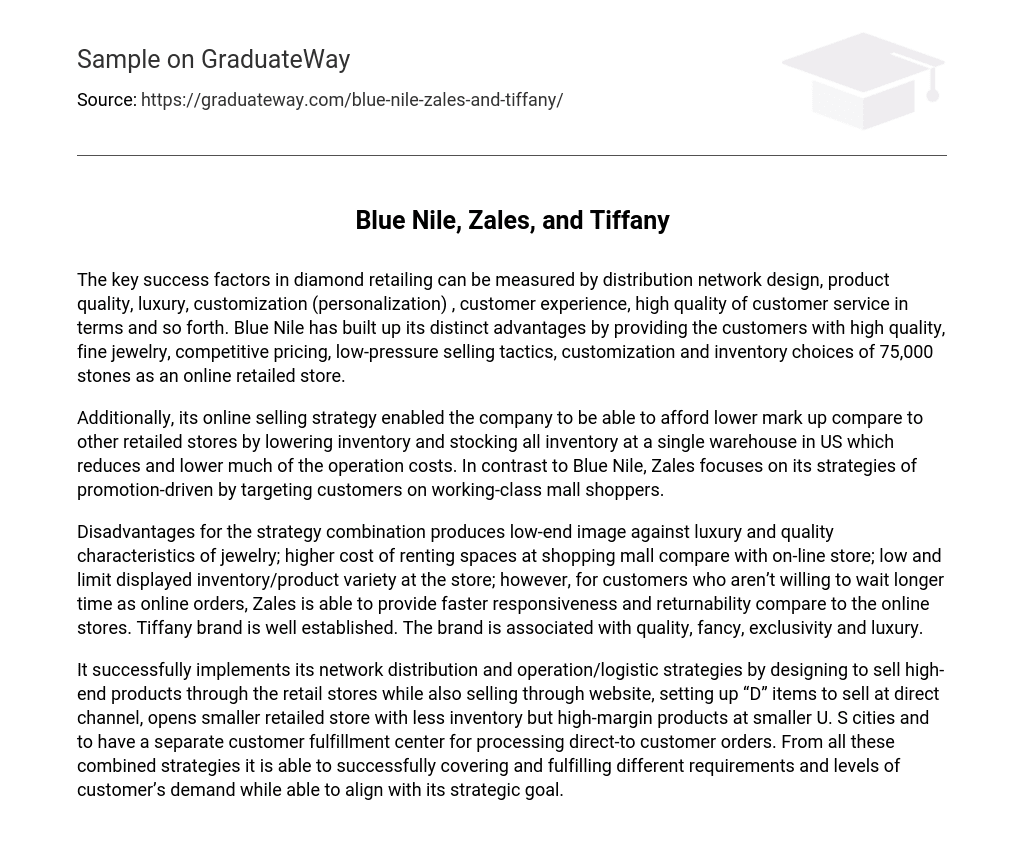The key success factors in diamond retailing can be measured by distribution network design, product quality, luxury, customization (personalization) , customer experience, high quality of customer service in terms and so forth. Blue Nile has built up its distinct advantages by providing the customers with high quality, fine jewelry, competitive pricing, low-pressure selling tactics, customization and inventory choices of 75,000 stones as an online retailed store.
Additionally, its online selling strategy enabled the company to be able to afford lower mark up compare to other retailed stores by lowering inventory and stocking all inventory at a single warehouse in US which reduces and lower much of the operation costs. In contrast to Blue Nile, Zales focuses on its strategies of promotion-driven by targeting customers on working-class mall shoppers.
Disadvantages for the strategy combination produces low-end image against luxury and quality characteristics of jewelry; higher cost of renting spaces at shopping mall compare with on-line store; low and limit displayed inventory/product variety at the store; however, for customers who aren’t willing to wait longer time as online orders, Zales is able to provide faster responsiveness and returnability compare to the online stores. Tiffany brand is well established. The brand is associated with quality, fancy, exclusivity and luxury.
It successfully implements its network distribution and operation/logistic strategies by designing to sell high-end products through the retail stores while also selling through website, setting up “D” items to sell at direct channel, opens smaller retailed store with less inventory but high-margin products at smaller U. S cities and to have a separate customer fulfillment center for processing direct-to customer orders. From all these combined strategies it is able to successfully covering and fulfilling different requirements and levels of customer’s demand while able to align with its strategic goal.





